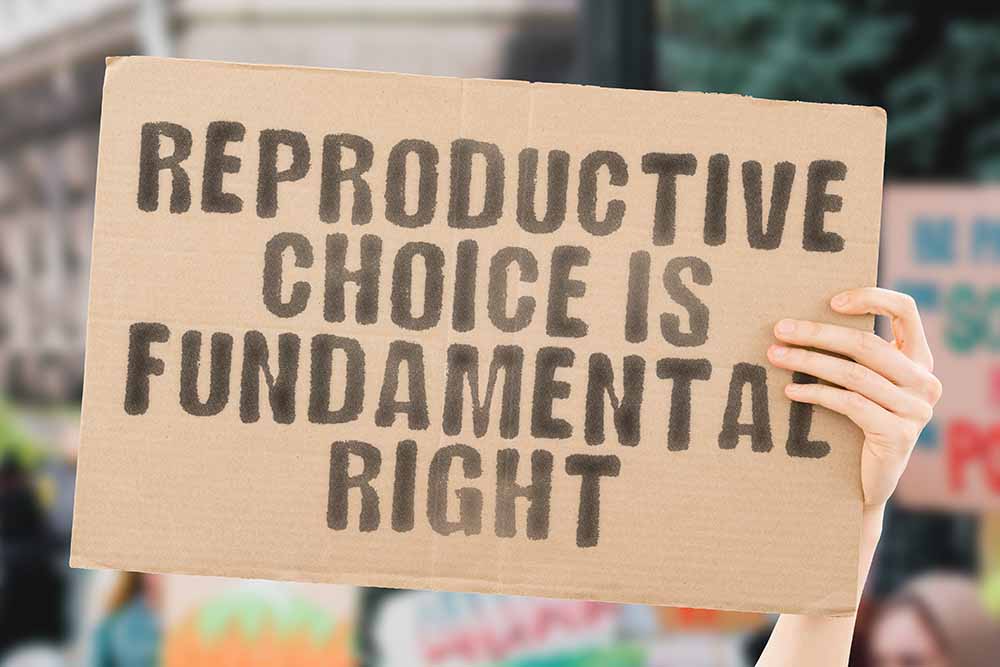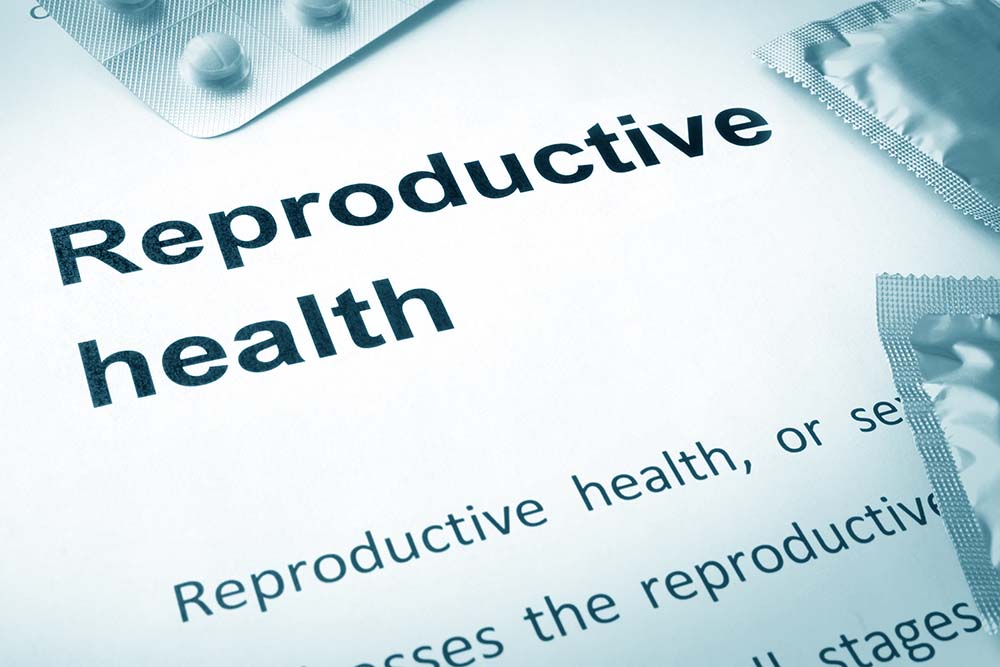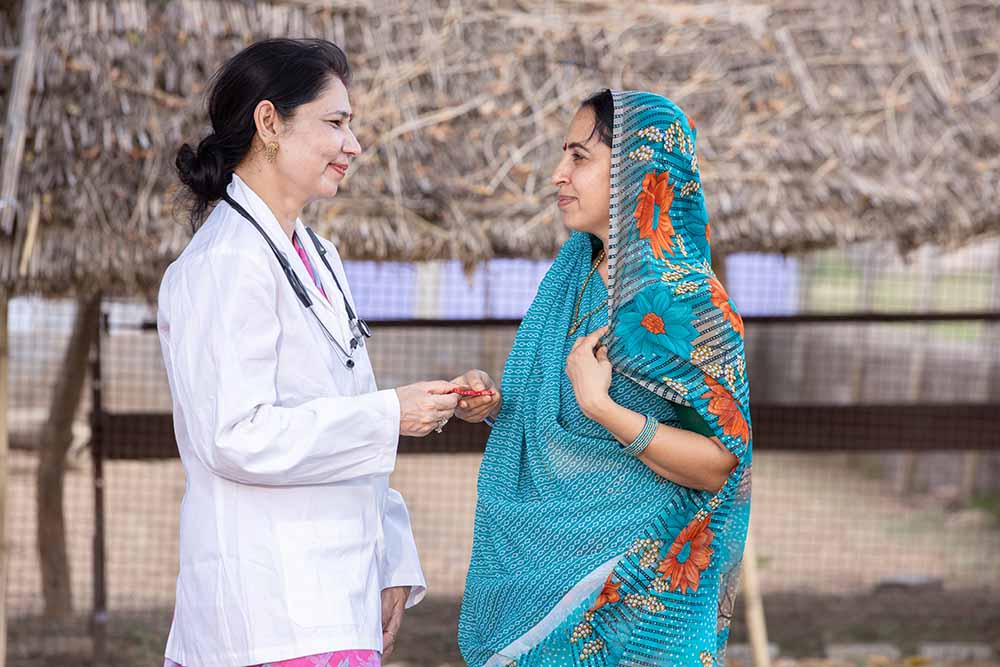Just like our basic human rights, sexual and reproductive health rights are a part of our inalienable rights. This stands true for people of all genders from across the world, but women need to know this even more—particularly since, even now, in many societies, women often face coercion, stigma and violence while accessing said rights. When it comes to India, the penal code of the nation provides many avenues for women so that they can access their reproductive health rights.
However, there are many gaps and loopholes—primarily due to there still being a prevalent patriarchy that runs our society, despite so many efforts to eliminate it and its ill effects—that can come in the way of women accessing said sexual and reproductive health rights. There is also a huge lack of awareness about said rights that comes in the way very often, whether in the case of urban women or rural women. This article hopes to remedy all that by providing you with a glimpse into all the legally affirmed sexual and reproductive health rights women in India have access to.

A Constitutional Right To Reproductive Health
Reproductive rights include a whole spectrum of civil, political, economic and social rights, encompassing everything from rights to equality and non-discrimination to privacy, information and freedom from ill-treatment. While these rights apply to people of all genders, violations of reproductive rights disproportionately harm women because of our capacity to become pregnant. This is why upholding the reproductive rights of women is a way of enabling gender justice and equality. The Constitution of India recognises these very rights through Article 14 and 15 (right to equality and non-discrimination) and Article 21 (right to life).
Further, India is also a signatory of a number of international conventions that work to assure these rights for women. This includes all the conventions made by the United Nations, the World Health Organisation (WHO), United Nations Children’s Fund (UNICEF), the Convention on the Elimination of All Forms of Discrimination Against Women (CEDAW), the International Covenant on Civil and Political Rights (ICCPR), the International Covenant on Economic, Social and Cultural Rights (ICESCR), and the Convention on the Rights of the Child (CRC). All of these conventions recognise reproductive rights.

The Right To Maternal Health
The right to maternal health is critical because even in this day and age, women in India do face the risk of maternal death. The current maternal mortality ratio (MMR) in India is 113/100,000 live births (2016-2018 UNICEF data), which is quite bad despite concerted efforts to provide more maternal healthcare access to women. While in many cases in urban India, access to maternal healthcare is comparatively easy, the condition in rural India and for women living below the poverty line is still unimaginably bad. Given the fact that our Constitution has the above reassurances for reproductive rights, there have been many landmark cases from across the High Courts of India which can be cited to ensure that Indian women have access to maternal health.
In 2011, the Delhi High Court issued a joint landmark decision in two cases where maternal health care was denied to two women living below the poverty line. Citing CEDAW and ICESCR above, the court stated that “no woman, more so a pregnant woman should be denied the facility of treatment at any stage irrespective of her social and economic background.” In 2012, the High Court of Madhya Pradesh echoed the judgement of the 2011 cases, recognising that “the inability of women to survive pregnancy and child birth violates her fundamental right to live as guaranteed under Article 21 of the Constitution of India,” and that “it is the primary duty of the government to ensure that every woman survives pregnancy and child birth.”
The National Rural Health Mission is also working, based on Article 21 and these landmark cases, to provide basic infrastructure, timely maternal health services, skilled personnel and referral as well as grievance redressal mechanisms to women who need it.

Contraceptive Access Rights
India, as you might know, has a huge population—which often comes in the way of providing all amenities and rights to all citizens. So, access to contraception is a key method of population control. However, population control is easier said than done, despite massive campaigns like “Hum Do Humaare Do” which the Indian government has been running for decades. Data from the National Family Health Survey (NFHS-5, 2019-2020) shows that while the use of modern contraceptive methods in India has gone up to 56.5 per cent, female sterilisation is still increasing. This lays an unbearably high burden on women, especially since there is a wide range of contraceptive methods available.
In 2016, the Supreme Court recognised women’s autonomy over their bodies as a constitutionally-protected right in the Devika Biswas v. Union of India & Others case, and forced sterilisation abuses this right. The Supreme Court also recognised that women have a right to “access a range of reproductive health information, goods, facilities and services to enable individuals to make informed, free, and responsible decisions about their reproductive behaviour.” It also noted that “the freedom to exercise these reproductive rights would include the right to make a choice regarding sterilisation on the basis of informed consent and free from any form of coercion.”
This landmark decision also noted that in a bid to control India’s population, government policies often focus predominantly on female sterilisation, which is a clear violation of women’s equality and reproductive health rights. This also affects economically and socially marginalised groups of women disproportionately, as informal targets of and incentives for sterilisations deprive women of any meaningful choice in the matter of contraception.
Add to this the fact that many reproductive and sexual health issues are treated with artificial hormones in oral contraceptives, access to these medications is something all women need in order to maintain their quality of that. Contraceptives like condoms are also used to prevent sexually transmitted infections (STIs), so access to them should be available—without stigma or discrimination—to all. While legally, this access is allowed in India, many face limitations while accessing them out of fear of stigma, judgement and ostracisation. You need to know that this is also a violation of your sexual and reproductive health rights.

Abortion Rights
While a country like the United States has recently marched in a direction opposite to progress, India remains one of the countries that allow safe access to abortions for women and girls who need it. According to the Medical Termination of Pregnancy Act, 1971, a woman or girl can get an abortion until 20 weeks of pregnancy. A 2021 amendment to this Act raised the ceiling for abortion to 24 weeks for certain categories of women and girls with the approval of two registered doctors. Many High Court cases from across India have also reiterated that unwanted pregnancies disproportionately burden women, apart from the state and the entire healthcare system, by not only violating a woman’s bodily integrity but also by aggravating her mental trauma.
Despite these assurances by law, unsafe abortions remain the third leading cause of maternal deaths in India. Studies show that of all the abortions done in India, only 22 per cent are done through safe public or private health facilities. This is primarily due to societal stigma towards women, especially young, unmarried women, seeking to terminate their pregnancies. There are also reports that in such cases, healthcare professionals themselves perpetuate stigmas by reprimanding the women, emotionally traumatising them, or by asking them to get consent from parents for the abortion. You should know that such demands are illegal, and you have a complete and inalienable, legal right to get a safe abortion based on your consent—and your consent alone—anywhere in India.

Knowing Your Sexual & Reproductive Health Rights
All of the above indicate that legally, in India, women have access to a wide range of in-depth sexual and reproductive health rights, ranging from access to contraception to abortions to maternal healthcare. So, quite a bit of the mechanisms that can address the legal and practical barriers that keep women and girls away from accessing their reproductive rights. Filing a case and fighting it certainly has challenges, but it also helps women and societies confront discriminatory stereotypes and behaviours that limit women’s authority. What works even better than litigation is knowing fully well what your sexual and reproductive health rights are, and based on the above information, here is a complete gist of all the rights you have as a woman in India:
• You have the right to sexual and reproductive health information, especially from professional healthcare personnel, including all your safe options, their benefits and possible adverse effects.
• You have the right to make decisions about your reproductive health, free of discrimination, stigma, coercion and violence.
• Whether to have one child, two, seven or none—and what the gap between them should be—is your decision.
• Whether you want to opt for sterilisation or any other form of contraception is your decision. If you do choose sterilisation, whether you get it done now or when you’re 50 is up to you.
• Whether you want to marry, when you want to do that, and when and how you want to have kids is your choice.
• You have a right to safe abortion upto 20 weeks of pregnancy; this limit can be extended to 24 weeks under special circumstances, with permission from medical authorities.
• You have a right to discuss your gynaecological problems with a licensed medical professional, and the right to manage, prevent and treat all issues, including STIs, HIV/AIDS, and reproductive health issues like PCOS, fibroids, etc.
• You have a right to affordable and safe methods of family planning and motherhood.
• You have the right to survive pregnancy and the right to refuse an abortion.